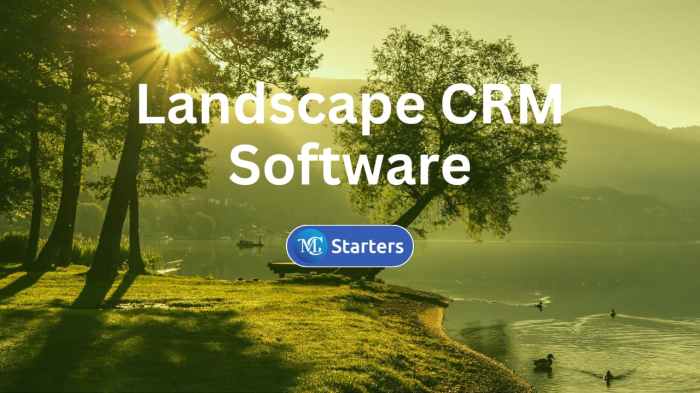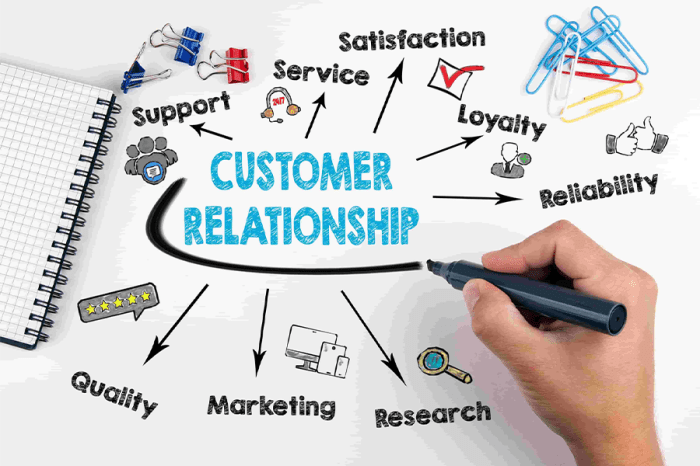Understanding Landscaping Business Needs: Crm For Landscaping Business

Crm for landscaping business – The vibrant world of landscaping presents unique challenges. Balancing client expectations, managing diverse projects, and coordinating schedules effectively can be a constant juggling act. Efficient resource allocation, accurate project tracking, and maintaining strong client relationships are paramount for success, yet often prove difficult to manage without the right tools. A robust system is crucial for growth and sustained profitability in this demanding industry.
Challenges in Landscaping Business Management
Landscaping businesses face several interconnected challenges. Managing client communication across various projects, often involving multiple teams and subcontractors, can lead to miscommunication and delays. Accurate scheduling, factoring in weather conditions, material availability, and team assignments, is another significant hurdle. Tracking project progress, expenses, and profitability across numerous jobs simultaneously requires meticulous record-keeping, which can be time-consuming and error-prone without a centralized system.
Furthermore, maintaining detailed client information, including preferences, past projects, and contact details, is essential for building lasting relationships and fostering repeat business. Failing to address these challenges can lead to missed deadlines, unhappy clients, and ultimately, financial losses.
Key Areas for CRM Improvement
A Customer Relationship Management (CRM) system can dramatically enhance efficiency in three crucial areas. First, a CRM centralizes client information, project details, and communication history, eliminating the need for scattered spreadsheets and email chains. This improved organization facilitates better communication and collaboration among team members. Second, project management capabilities within a CRM allow for streamlined task assignment, progress tracking, and resource allocation, leading to improved project timelines and reduced costs.
Third, integrated scheduling tools optimize team deployment, minimizing conflicts and maximizing productivity. The comprehensive data provided by a CRM enables informed decision-making, helping landscaping businesses to identify profitable projects, optimize resource allocation, and proactively address potential issues.
Mobile Accessibility in Landscaping CRM, Crm for landscaping business
Mobile accessibility is paramount for a landscaping CRM. Landscaping professionals spend much of their time on-site, requiring access to crucial information regardless of location. A mobile-friendly CRM allows for real-time updates on project progress, client communication, and scheduling adjustments, directly from the field. This immediate access reduces delays, improves responsiveness, and fosters stronger client relationships.
| Feature | Mobile CRM Pros | Mobile CRM Cons | Desktop CRM Pros | Desktop CRM Cons |
|---|---|---|---|---|
| Accessibility | Access information anytime, anywhere. | May require a strong internet connection. | Access to large datasets and complex reports. | Limited access outside the office. |
| Real-time Updates | Instant updates on projects and client communication. | Smaller screen size may limit data viewing. | Detailed data analysis and reporting capabilities. | Updates require returning to the office. |
| Efficiency | Streamlines fieldwork, reduces administrative tasks. | Potential for distractions from on-site tasks. | Facilitates comprehensive data entry and management. | Less flexibility for on-site adjustments. |
| Client Communication | Quick responses to client inquiries and updates. | Typing on a smaller keyboard can be less efficient. | Allows for structured communication and record-keeping. | May delay communication if not immediately accessible. |
Implementing and Using a CRM

Implementing a Customer Relationship Management (CRM) system can significantly enhance efficiency and profitability for a landscaping business. A well-chosen and properly implemented CRM system acts as a central hub, organizing client information, project details, and financial data, leading to improved communication, streamlined operations, and ultimately, increased client satisfaction and retention. This section details the practical steps involved in integrating a CRM into your landscaping business.
CRM System Implementation Steps
Implementing a new CRM involves careful planning and execution. The process typically unfolds in several key stages, each demanding attention to detail to ensure a smooth transition and successful adoption by your team. Ignoring any of these steps can lead to challenges down the line, hindering the full potential of the system.
- Needs Assessment and System Selection: Begin by thoroughly evaluating your business’s specific requirements. Consider the size of your client base, the complexity of your projects, and the features essential for efficient operation. This assessment informs the selection of a CRM system that aligns with your needs and budget, whether it’s a cloud-based solution or an on-premise system.
- Data Migration: Transferring existing client data, project details, and financial records into the new CRM system requires careful planning and execution. This might involve importing data from spreadsheets, previous CRM systems, or other databases. Data cleansing and validation are crucial to ensure accuracy and prevent future issues.
- Staff Training and Support: Comprehensive training for your staff is paramount. Hands-on sessions and ongoing support ensure everyone understands how to effectively use the CRM system. This includes data entry, reporting, and communication features. Regular refresher training can help maintain proficiency and address evolving needs.
- System Customization and Integration: Many CRM systems allow for customization to better suit specific business needs. This might involve tailoring fields, workflows, or integrating with other business tools like accounting software or scheduling applications. Proper integration streamlines data flow and avoids data silos.
- Testing and Go-Live: Before full implementation, a thorough testing phase is crucial. This involves simulating real-world scenarios to identify and resolve any issues. A phased rollout can help minimize disruption during the transition to the new system.
Managing client details and projects efficiently is crucial for any landscaping business. The right CRM system can streamline operations, from initial quotes to final payment. For smaller operations, consider investing in user-friendly options like those available at simple crm software for small businesses for sale , ensuring your focus remains on cultivating beautiful gardens, not tangled spreadsheets.
A well-chosen CRM will ultimately boost your landscaping business’s profitability and client satisfaction.



